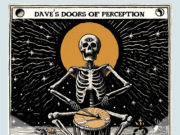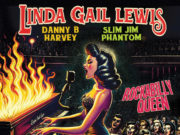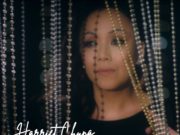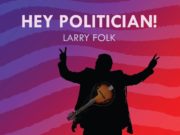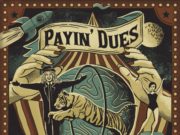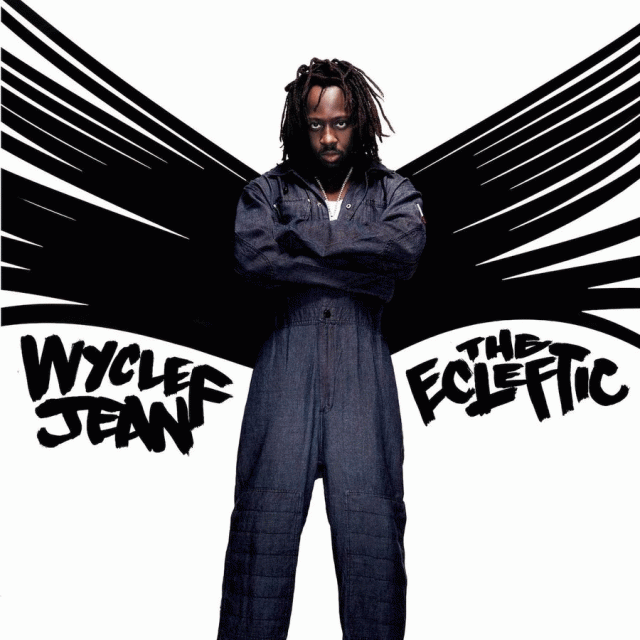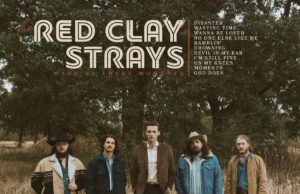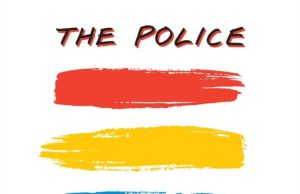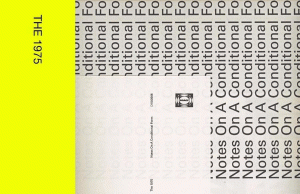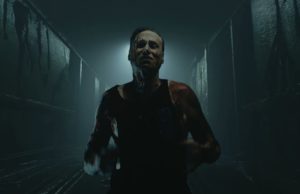Two decades ago, new albums from Wyclef Jean, Elastica, 54•40 and others were spinning away in my portable CD player. Here’s what I had to say about them back then (with some minor editing):
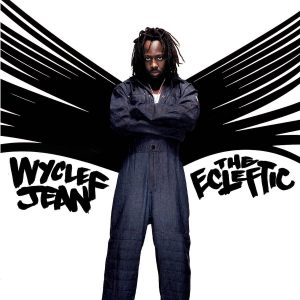 Wyclef Jean
Wyclef Jean
The Ecleftic: 2 Sides II a Book
Wyclef Jean knows the score. “All I hear is Fugees this, Fugees that, ‘Where Fugees at?’ ” he gripes good-naturedly on Where Fugees At?, the first song of his second solo CD The Ecleftic.
You can’t blame folks for wondering. It has, after all, been four years since Wyclef, Pras Michel and Lauryn Hill released their mammoth-selling breakthrough album The Score, which spawned the equally mammoth-selling single Killing Me Softly With His Song. Since then, everybody’s been waiting for the followup. The fans, the record company — even, it seems, Jean himself (“Pras, if you’re listening, Lauryn, if you’re listening, gimme a call,” he invites later in the same song). Even so, you also can’t blame him if he’s a little miffed. It’s not as if he’s been pulling an Axl Rose since 1996. Although Hill is the most commercially successful of the trio — her 1998 CD The Miseducation of Lauryn Hill took both the charts and the Grammys by storm — Clef has been the busiest. Along with issuing his own 1997 solo disc, the critically lauded Wyclef Jean Presents the Carnival Featuring the Refugee All Stars, he has toured extensively, produced a slew of albums for other artists and collaborated with everyone from Ol’ Dirty Bastard to Sesame Street’s Elmo. In other words, he’s doing just fine on his own, thank you very much.
Actually, on the entertaining, endlessly inventive Ecleftic, he’s doing much better than just fine. And he’s doing just as he pleases. Like Carnival, which lived up to its name by blending everything from hip-hop to opera into a distinctive hybrid, Ecleftic finds Jean jamming every style he can think of into the musical blender — ska, reggae, dancehall, pop, acid rock, country.
That’s right, Wyclef does country. And not just any country track. On Dub Plate, he reworks Kenny Rogers’ The Gambler with a little help from the man himself, kicking off the track DJ style (“Yo, this is Kenny Rogers chilling on the country side”) and then crooning his own rewritten lyrics (“You gotta count your dub plates / Before you touch the turntable / Cause if you run out of big tunes / That means your sound is done.”) over a brooding, syncopated hip-hop stomp punctuated by hard-hitting raps from Pharoache Monch. Believe me, it’s as weird as it sounds.
But then, Ecleftic has more than its share of weird moments. Exhibit 1: It Doesn’t Matter, the skanky first single and a duet with another redneck icon — WWF blowhard The Rock, who bellows the song’s title as if a championship belt depended on it. Exhibit 2: Wish You Were Here, a gently flowing hip-hop rendition of Pink Floyd’s prog-rock classic. Exhibit 3: A hilarious sendup of Sony label head Tommy Mottola, who hangs up on Wyclef when the musician enthuses over his new album, telling him, “Call me back when you got a Fugees record.” (See, we told you the record company was waiting.)
Few performers could manage to thumb their noses so boldly at so many targets — former bandmates, record labels, musical conventions — and get away with it. But Wyclef pulls it off with a sly combination of playfulness and bald-faced ego; he knows doing a duet with Kenny is a goof, but at the same time he’s defying you to tell him it doesn’t work.
In all fairness, sometimes it doesn’t — mostly when Jean’s ego gets the better of him. In Wish You Were Here, for instance, he laughably boasts, “Critics, don’t mistake this for just any cover tune / I’m gonna take y’all to the dark side of the moon.” Or there’s the funky dope ode Something About Mary, in which he compares his workmanlike guitar-playing to that of Hendrix, Clapton, Santana, Steve Vai, B.B. King and Prince. Yeah, sure. And The Rock is right up there with Sinatra.
Still, these are but a few duff moments on an album of superb keepers. From the moving Marley-style balladry of Diallo (a tribute to the New Yorker slain by police while reaching for his wallet) to the soulful 911 with Mary J. Blige and the pop-that-coochie stripper ode Perfect Gentleman, Wyclef seems incapable of writing a pure dud. Ultimately, this is why he gets away with all his genre-pushing idiosyncrasy — even at his most outrageous, Wyclef’s songs are unforgettable, superbly commercial tracks that bore into your brain and refuse to leave. Where Fugees at? Who cares?
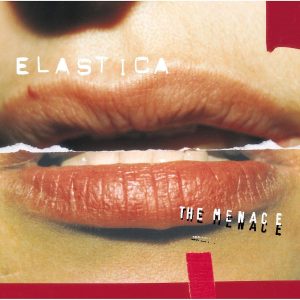 Elastica
Elastica
The Menace
I realize Elastica’s Justine Frischmann has been busy. Since the band’s self-titled debut disc in 1995, she’s broken up with Damon Albarn of Blur; hired and fired a number of bandmates; faced plagiarism suits over her songs Connection and Waking Up; and, reportedly, gone a few rounds with various substances. Still, you’d think that over the past five years, she’d have found time to pen an album’s worth of tunes. Apparently not, going by this infuriatingly inconsistent, long-delayed sophomore disc. Once again, Frischmann mines the work of ’70s art-punks like Wire and The Stranglers for her angular guitar lines and slinky bass grooves. Only she seems to have lost interest midway through. Most of Menace’s tracks are annoyingly underwritten — one-riff, no-chorus ditties that try to mask their lack of substance with sloppy, post-punk clatter and layers of electronic tomfoolery. But when a cover of Trio’s Da Da Da is the most elaborate song on your CD, it’s a sign you should have spent more time writing and less sampling feedback. Better luck in 2005, Justine.
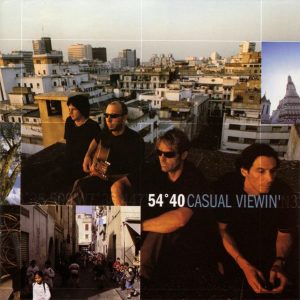 54•40
54•40
Casual Viewin’
Casual, indeed. And invitingly so. This ninth disc from Vancouver rockers 54•40 is a decidedly relaxed, loose affair — a set of easygoing pop numbers whose light touch and breezy style suggest a band playing for the sheer enjoyment of it and taking a holiday from the the rigours of trying to pen hit singles. In fact, some of the project was a working vacation — instead of blowing big bucks on videos and art, 54•40 bought some cameras and went around the world in three weeks to shoot clips for this self-produced CD. Fans of the band’s harder-edged material will have to make do with only a track or two, like the funky grit of Unbend. But those looking for a fine autumn album will find it in the gentle acoustic guitars of Blue Sky, the Simon and Garfunkel melody of Sunday Girl, the R.E.M.-ish mood-pop of It’s Alright, the 96 Tears keyboards and hip-hop soul of You the One, and the jangly Britpop of Someone’s Mind. It’s worth the trip.
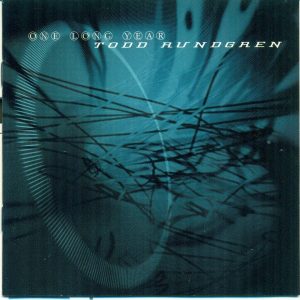 Todd Rundgren
Todd Rundgren
One Long Year
Finally, the perfect song for the Internet Age: I Hate My Frickin’ ISP, three minutes and 45 seconds of exquisitely produced spleen-venting pop that kicks off Todd Rungren’s latest enticing offering. Of course, this is pretty much par for the course for Rundgren, a guy who has spent decades combining cutting wit with cutting-edge technology. His latest invention is Patronet, an online subscription service that delivers new songs to paying fans on a regular basis. So hardcore Rundgrenites have doubtlessly already heard his Hawaiian ukulele revamp of Bang on the Drum All Day, the Nine Inch Nails techno-gloom of Jerk, and the Moby-like blues-sample electro of Mary and the Holy Ghost. But for the rest of us Luddites, One Long Year is a 40-minute-long treat. Although Runt’s cyber-perfectionism often earns him more respect as a technician than a musician, he’s still one of the few guys around who can make electronic instruments sound soulful.
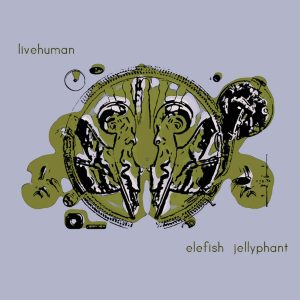 Live Human
Live Human
Elefish Jellyphant
I’ve said it before and I’ll say it again — old-school jazz, new-school hip-hop and cutting-edge electronica are as intimately connected as Angelina Jolie and her brother. And San Francisco’s Live Human might be the band that proves that theory once and for all. This “pocket orchestra” consists of standup bassist Andrew Kusin, drummer Albert Mathias and turntablist DJ Quest, a DJ Shadow collaborator and graduate of Handsome Boy Modelling School. That’s right — Live Human are like a traditional jazz trio, but with turntables as lead instrument. And they behave just like a jazz band, with the rhythm section improvising funky grooves and happening, boppy progressions while Quest cuts loose over top, crafting melodies, verses, choruses and licks from his crates of wax and plenty of freaky samples. What they end up with after all that is kinda like electronica (minus the electronics), sorta like jazz (minus the endless solos) and hip-hop (but with real instruments). In other words, like its name, Elefish Jellyphant is neither fish nor fowl. But it is one deliciously tasty hybrid.
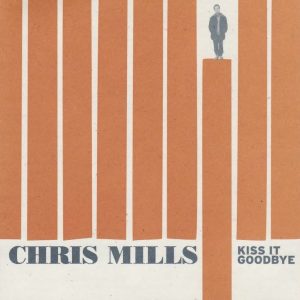 Chris Mills
Chris Mills
Kiss It Goodbye
Alt-country troubadour Chris Mills says he was listening to Lou Reed’s Transformer a lot while he wrote the songs for Kiss It Goodbye. I don’t quite buy it — although I might have believed him if he’d namechecked Berlin. That decadent, magnificently bleak opus seems a more likely ancestor to the intoxicating melancholy that dominates the Chicagoan’s introspective sophomore CD. Lyrics like, “It is your own finger that is poised upon the trigger / That is connected to the barrel in your mouth,” seem to flow endlessly and effortlessly from Mills’ poison pen. And his raspy, plaintive howl — on the fence between the doomed soul of Gram Parsons and the misanthropic sneer of Paul Westerberg, with a touch of Dwight Yoakam’s honking twang — personifies them perfectly. Aided and abetted by a who’s who of Chicago roots-rockers including Jon Langford and Kelly Hogan, Mills stretches the boundaries of Americana to include Phil Spector, The Righteous Brothers and The Replacements as he divulges these poetic, literate tales of dreamers, drunkards and desperate down-and-outers rushing to hit bottom because then they have nowhere to go but up. As does he.
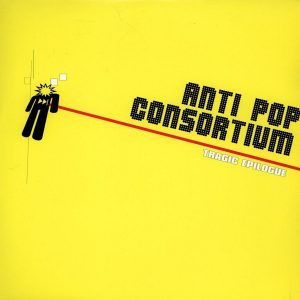 Anti-Pop Consortium
Anti-Pop Consortium
Tragic Epilogue
In the beginning, there is The Word. Long before rappers do their thing to overproduced backing tracks in overpriced studios, they learn their craft alone or with friends, rhyming in the schoolyard, freestyling on the corner or jamming in the basement. New York’s Anti-Pop Consortium still believe in the power of The Word. So, on their impressive debut disc Tragic Epilogue, the quartet put their spectacular vernacular at the forefront, tossing staccato, tongue-tying rhymes around like hot potatoes over stripped-down backing tracks that provide only the barest canvases for their colourful outbursts. The rambling, sex-and-sci-fi theme of tracks like Monster Sex, Moon Zero X-M, PSA2 and 9.99, coupled with the darkly sinister minimalism of their grooves, suggest these guys have heard a few Kool Keith albums in their time. Admittedly, while plenty of these cuts crackle and spark, few catch fire. Still, their intelligence and creativity goes far beyond the bling-bling flossing of hip-hop, putting them in a league closer to The Last Poets than The Wu-Tang Clan. Word.
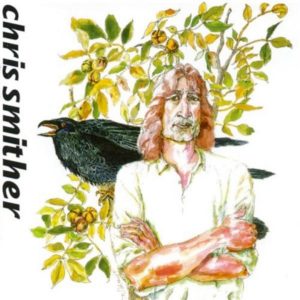 Chris Smither
Chris Smither
Live as I’ll Ever Be
When he performs, Chris Smither seems to be a bit like folk music’s version of Stompin’ Tom. His hyperactive, expressive feet are as much a part of his act as his guitar and voice. Of course, that’s where the similarities begin and end. No one wandering into a Smither show could mistake the New Orleans-raised singer-guitarist for anyone but who he is — a modern master of contemporary folk and acoustic blues. Here, in his preferred element, a concert stage — Smither says he makes studio albums only to have something to play on tour — he displays the full range of his agile, precision finger-picking and smoky, Claptonish voice. Over the course of an intimate hour, he wanders from delicately hypnotic folk (Hold On I) to the pinky-finger boogie of Chuck Berry (Link of Chain) and Delta barnburners (Robert Johnson’s Dust My Broom). No wonder his toes are tapping.
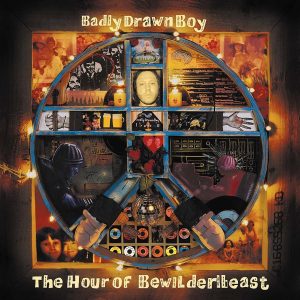 Badly Drawn Boy
Badly Drawn Boy
The Hour of the Bewilderbeast
With his slacker-folkie aura, man-child sensitivity and free-range pop experimentation, Manchester’s David Gough — aka Badly Drawn Boy — gets mentioned in the same breath as Beck a lot. Listen to his magnificently eclectic debut disc, however, and it quickly becomes apparent such comparisons don’t tell the whole tale. Yes, Gough often mines a similarly fractured, pop-pastiche vein to that Hansen boy, ricocheting from folk to pop to jazz to techno to hip-hop at the drop of the beat. But he does it without Beck’s self-indulgent, bludgeoning irony. Instead, Gough displays an intimate earnestness and vulnerability that turns even the quirkiest, most potentially pretentious track — such as Fall in a River, which ends with the sound of someone doing just that — into an enchanting, sweetly enjoyable affair. As pop art, Bewilderbeast may be slightly too surreal to be a chart-topper, but it’s a fascinating portrait of the artist as a young, strange man.
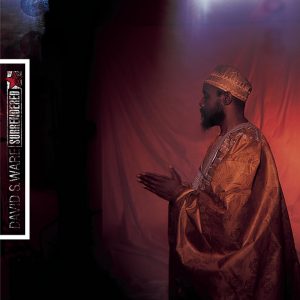 David S. Ware
David S. Ware
Surrendered
Free jazz is the great dividing line of the genre. Even though jazz has always been fuelled by improvisation, the total anarchy of free jazz — with players tossing aside melody, harmony, tempo and rhythm — is still a battleground between the old guard and the avant-garde. In that light, maverick saxman David Ware’s Surrendered could be seen as an olive branch. A post-Coltrane stylist and former Cecil Taylor sideman, Ware blows a rude, incendiary blowtorch of a tenor, usually over rolling waves of improvisation by his awesome trio of bassist William Parker, pianist Matthew Shipp and various drummers. But unlike past free-flowing triumphs such as 1991’s Flight of I, Surrendered doesn’t totally jettison traditional musicality. Of the six tracks, two — a boppish take on Charles Lloyd’s Sweet Georgia Bright and a Brubeckian, vampy version of Beaver Harris’s African Drums — provide oases of logic and form in the turbulent, swirling sands of Ware’s fierce rebellion. Don’t think of it as a retreat; think of it as a peace offering.
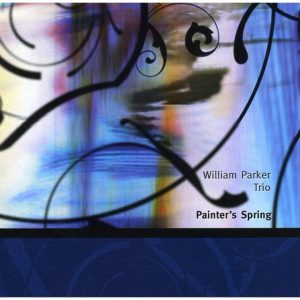 William Parker Trio
William Parker Trio
Painter’s Spring
I once saw dynamic free-jazz bassist William Parker improvise a solo set that held a crowd enthralled for 40 minutes — and that was in a record store full of shoppers on a Saturday afternoon. With that kind of stopping power at his command, it’s no surprise that the latest effort from this mighty New York talent is a powerful, compelling set. Recorded live in the studio one day last year, Painter’s Spring is a groove-laden affair packed with relentless momentum and kinetic energy. Parker weaves thick, ropy bass lines as drummer Hamid Drake fires off wicked, ricocheting bank shots of rhythm, laying down an intricate foundation for reed/horn man Daniel Carter, who roams freely at the upper sonic end of the spectrum, soaring and diving above and between the beat like an electron spinning around an atom. The occasional sombre slice of bowed-bass melancholy keeps the whole affair from overbalancing into self-destructive discombobulation. I’d love to hear how this would go down at HMV on a Saturday.
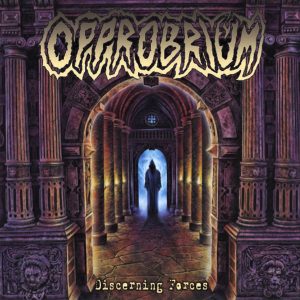 Opprobrium
Opprobrium
Discerning Forces
Who says heavy metal isn’t educational? Why, if it weren’t for Opprobrium, I might never have learned what the word meant — disgrace arising from shameful conduct; scornful reproach; contempt. Plus, I might never have learned what became of brothers Francis and Moyses Howard, the Brazilian-born, Big Easy-based brothers who used to lead death-thrashers Incubus. Now that a California rap-rock outfit has absconded with that handle, the Howards have a new identity. But they haven’t given up the bone-shredding, gut-stomping metal mayhem of previous albums such as To the Devil a Daughter and Beyond the Unknown. Discerning Forces is 35 hellacious minutes of napalmic frenzy a la Sepultura or Kreator — maniacal double-bass drumming, grinding-gear guitars, Viking-party bellowing, finger-shredding arpeggios, rubbery time signatures and tempos that speed up and slow down like a Walkman with dying batteries. If this makes you stupid, then … um … I forgot what I was going to say. Rock on!
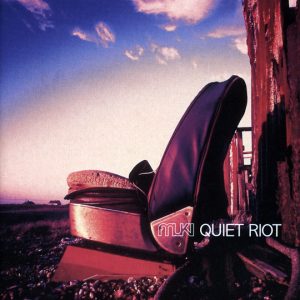 Muki
Muki
Quiet Riot
No, this is not the return of Kevin DuBrow. Quiet Riot is the title; Muki is the band. Or, to be more accurate, the duo of musician/programmers Luke Mullen and Jules Evans. You’ll find neither Slade covers nor pop-metal guitar riffage in these deep, delicious grooves. Instead, percussionist Evans and keyboardist Mullen come closer to splitting the difference between the trancy trip-hop of the ’90s and the light jazz-funk of ’80s Miles Davis. With silky-smooth vocals from a selection of talented guests and breezy, flowing instrumentals that convey a late-night street-scene vibe via sound effects such as sirens, traffic noise and sound effects, Quiet Riot is the rare disc that’s both cool enough for the chillout room and accessible enough for background music at a family dinner. Come on, feel the noise.
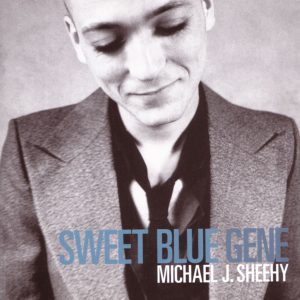 Michael J. Sheehy
Michael J. Sheehy
Sweet Blue Gene
You probably don’t remember the Dream City Film Club. Nor should you, really. The deviant U.K. outfit put out two critically acclaimed but commercially underappreciated discs of noirish, melodramatic rock — imagine Nick Cave’s Birthday Party as a Velvet Underground cover band — before quietly imploding last year. Singer-guitarist and frontman Michael J. Sheehy, is, unsurprisingly, the first to emerge from the rubble with a solo album, the seductively gloomy Sweet Blue Gene. Taking a moodier, more subdued tack than his former band, Sheehy turns down the distortion pedals and unplugs the amps, setting his sonorous voice against a variety of delicate backdrops — everything from Tindersticks mope-rock to tense trip-hop and even the post-industrial clunk of latter-day Tom Waits — and delicately weaving his spell through 10 tales of ominous amourousness. Deliciously evil, subtly disturbing and damn near unforgettable.


